A traumatic experience such as the death of a loved one can be a catalyst that motivates us to look at our life choices and consider significant changes. My family and I have first-hand experience of this. When we were in the initial planning phase of our global travels, my father abruptly passed away a day before my daughter’s fourth birthday. His sudden passing was my catalyst; after sustained meditation, I found that I could no longer entertain an easier path in life. I knew then that I had no choice but to pay homage to his passing and begin our journey, and every year, a day before my dear Jessica’s birthday, I am reminded that time is fleeting.
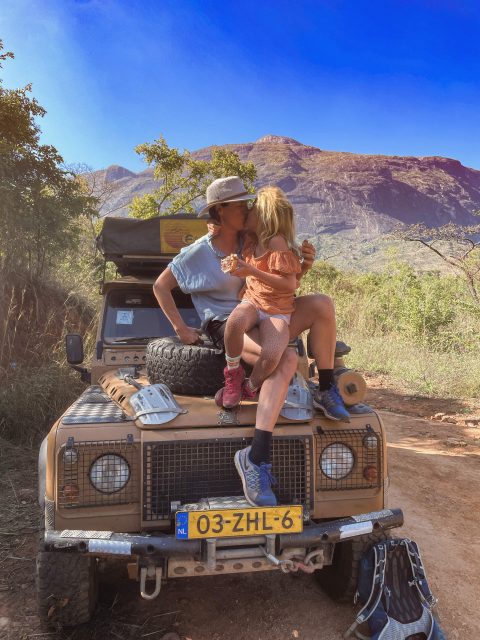
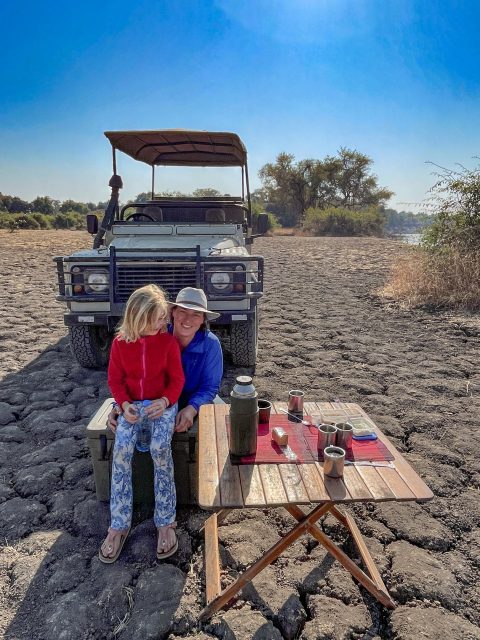
As cliché as it sounds, it is human nature to put off those things we can do today until tomorrow, and we constantly question whether it will be possible for us to achieve the impossible. But before I had my moment of clarity, the doubt had been draining. Do I have the courage, the strength, and the monetary means to achieve my wildest dreams? The latter is usually the first thought of uncertainty that shelves the idea of long-term overland travel. It is tempting to walk away from the challenge, patting ourselves on the back, saying, “That was the right move; we would not be able to afford it. We just saved ourselves a lot of hard work and commitment for something that we will likely achieve in the next 5 years, perhaps 10, or when the time is right.”
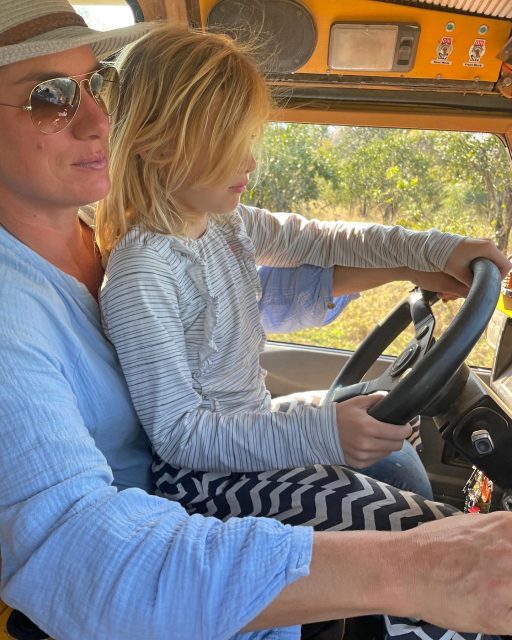
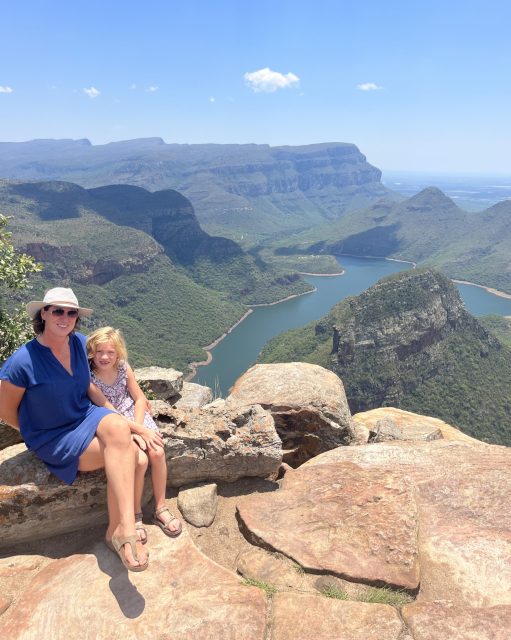
Nadja Ensink’s life changed in an instant when she lost her husband suddenly. Her newborn daughter, Fleur, was only 11 days old. Nadja eventually worked through her pain. Using the lessons she had learned, she became a counselor, helping other women come to terms with their grief and to move forward with their lives. Her husband, Jeroen’s, sudden death was to be Nadja’s catalyst, and she chose to honor her husband’s passion for travel and embrace her desire to live life to the fullest, sharing her experience with her daughter.
Each individual experiences loss differently. I believe that overland travel helped me to deal with my grief; Nadja found the same to be true and eventually found that elusive happiness to enrich Feur’s life and her own.

Tell us about yourself
My name is Nadja Ensink-Teich, and I have a daughter, Fleur, aged seven years. I am originally from the Netherlands, but I left home when I was 19 to work and travel abroad. I met Jeroen, the love of my life, in London in 2010. We married in 2012, and when Fleur was born in 2015, she was the icing on the cake.
On 29 December 2015, Jeroen went to mail Fleur’s birth announcement cards to friends and family. Tragically, Jeroen was stabbed 5meters from our front door by a random stranger suffering from a cannabis-induced psychosis. Jeroen died on the spot while Fleur and I were inside our house, unaware of the tragedy unfolding outside. Our life was turned upside down in a second, and nothing was ever the same again. I now had to raise our daughter and face life as a widow.
The afternoon of my husband’s death, I promised myself that I would not become bitter and that Fleur would not lose me to grief.
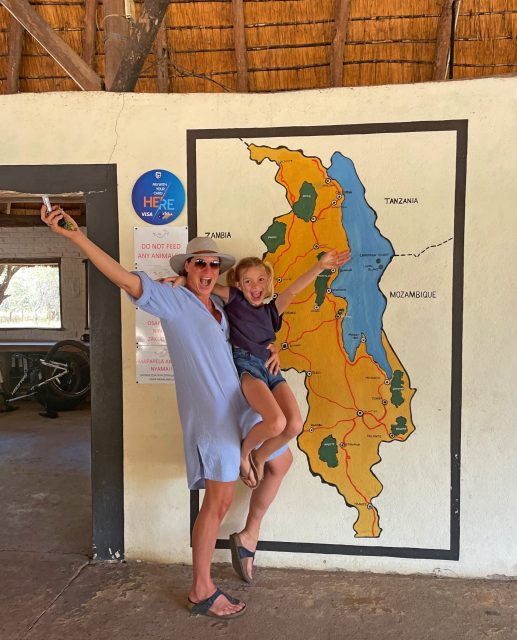
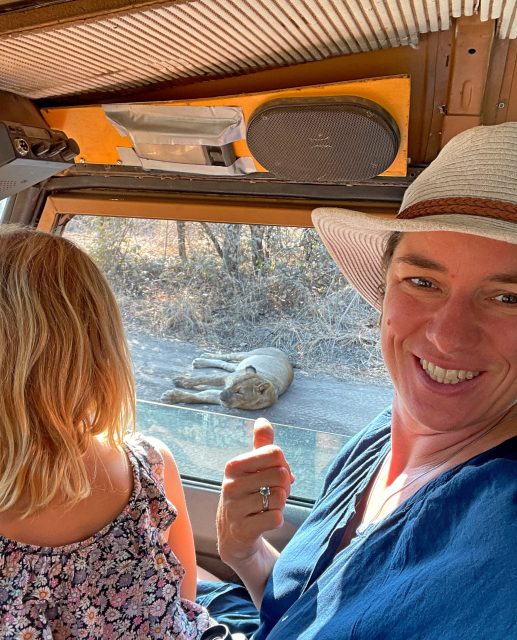
What motivates and inspires you to travel?
As parents-to-be, Jeroen and I aspired to travel and work abroad and show our children the world. Traveling as a single mother with a young child is a different story. My husband was a water and sanitation expert dedicated to improving the lives of the less fortunate. On the day of his murder, I promised to show Fleur the world, which is a driving force behind my motivation.
What is your life philosophy?
The poem titled ‘You can shed tears that he is gone’ by David Harkins embodies my life philosophy.
You can shed tears that he is gone,
Or you can smile because he lived.
You can close your eyes and pray that he will come back,
Or you can open your eyes and see all he’s left.
Your heart can be empty because you can’t see him,
Or you can be full of the love you shared.
You can turn your back on tomorrow and live yesterday,
Or you can be happy for tomorrow because of yesterday.
You can remember him and only that he’s gone,
Or you can cherish his memory and let it live on.
You can cry and close your mind, be empty and turn your back,
Or you can do what he’d want:
Smile, open your eyes, love and go on.
I first came across it in one of the condolence cards I received, and it’s been a lifesaver at the most challenging times.
You chose to travel from South Africa to Uganda with a Land Rover Defender. Why and how did you decide on this route?
I purchased my Land Rover Defender in Cape Town, South Africa, our starting point. As we set off during the cold South African winter, we drove into Mozambique, Malawi, and Zambia. Our route was flexible, and we made our decisions based on intuition. Instead of making Tanzania our next stop, we diverted our plans and ventured into Zimbabwe, returning to South Africa before heading through Namibia and further north to Uganda. Along the way, we visited development projects, former students, and collaborators of my late husband. Through them, I can show Fleur a different side of Africa, and they can share stories of Jeroen with her that I cannot.
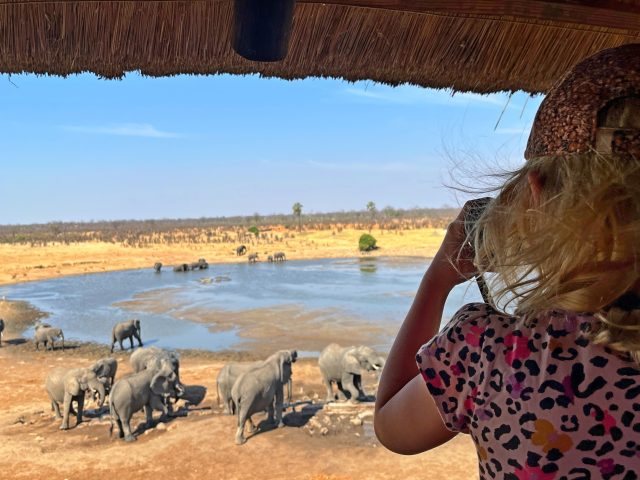
You said everything on the road is amplified—the good, the bad, and the ugly. Can you elaborate on this?
I have a perfectly stable life at home in the Netherlands, but it’s not very exciting. When we’re on the road, not one day is the same. When we set off in the morning, we have no idea how the day will unfold. We meet different people along the way who open their homes and hearts to us, which is the complete opposite of our lives in Europe. But when things don’t go well, I realize we’re on our own and missing the comforts of our home. Raising my daughter on the road is not always smooth sailing, either. At times it’s very challenging for her. We home-school, and she misses her friends. All these things come with their own set of challenges.
Are there any organizations that you support or promote while traveling?
We are driving for the Jeroen Ensink Memorial Fund, a scholarship we set up where we support students from sub-Saharan Africa and Southeast Asia who are committed to improving public health in developing countries and wish to undertake the MSc Public Health for Development course.
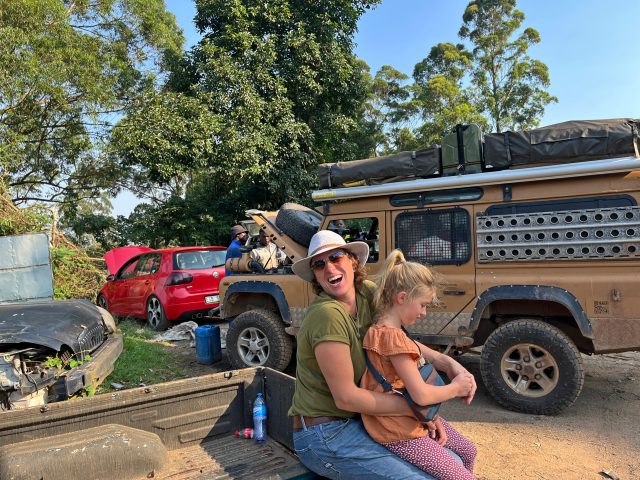
You mentioned that Fleur is currently home-schooled. Will she be reintegrated into traditional schooling when you return to the Netherlands?
The idea was for Fleur to return to school, but the longer we travel, the less confident I am. I can see how traveling has changed her, how much more flexible she has become, and how she is expressing herself away from social norms. She is following her intuition much more, and there is space for her to do just that. She is speaking fluent English now and is learning more every day. I can see how, when we return to the Netherlands, she will lose some of her newfound freedom and expression, and I am not sure if that’s what’s best for her, orme, for that matter.
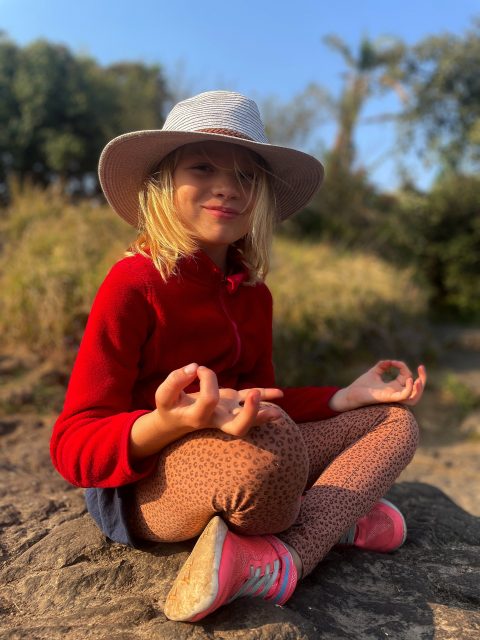
How has traveling changed you?
Traveling has brought me back to life. After losing Jeroen, I went into survival mode and can honestly say that traveling was my grieving method.
What has surprised you the most about overland travel?
I love it—exploring without a set plan and the ability to change your route on a whim.
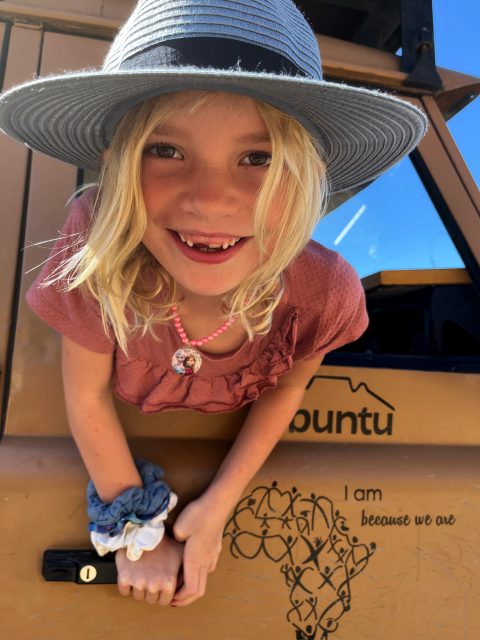
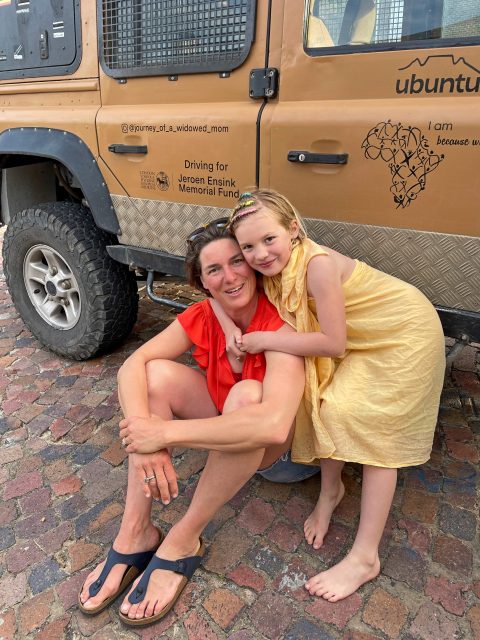
What are your favorite overland destinations so far?
South Africa. The diversity of the country is amazing. One day you’re at the beach, and the next, in the mountains driving along one of the many passes. This, combined with its comforts, makes it a firm favorite for me. Also, the friendliness of the people of Malawi is hard to top.
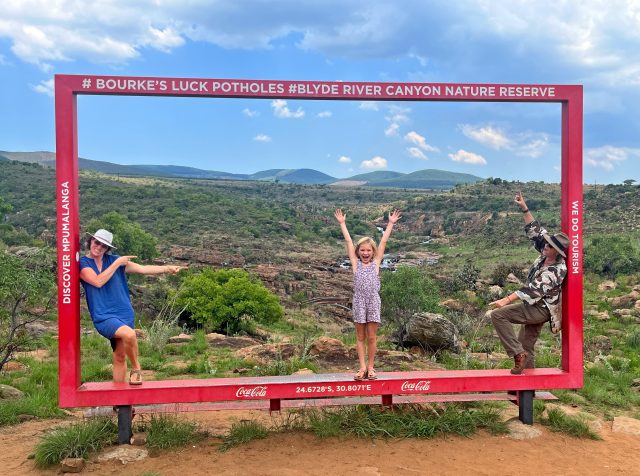
Do you plan on continuing overland travel after your trip through Southern Africa?
I had planned to travel for one year, but there is still so much more I want to see, feel, and explore. Our travels might last a bit longer, but we can return home for a while and then set off again later.
How do you afford to travel?
I rent our house in the Netherlands and am lucky to receive a widower’s pension. While Africa is not the cheapest continent, it is more affordable than living in the Netherlands. Camping doesn’t cost much, and we tend to cook meals, with petrol being our biggest expenditure. If I want to save money, we slow down and stay a bit longer at a particular spot.
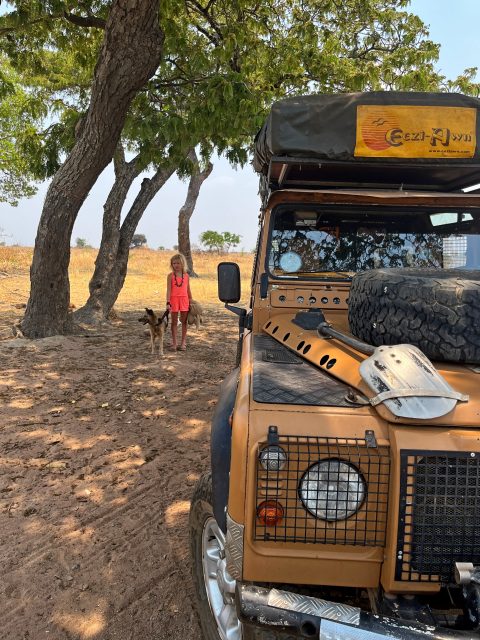
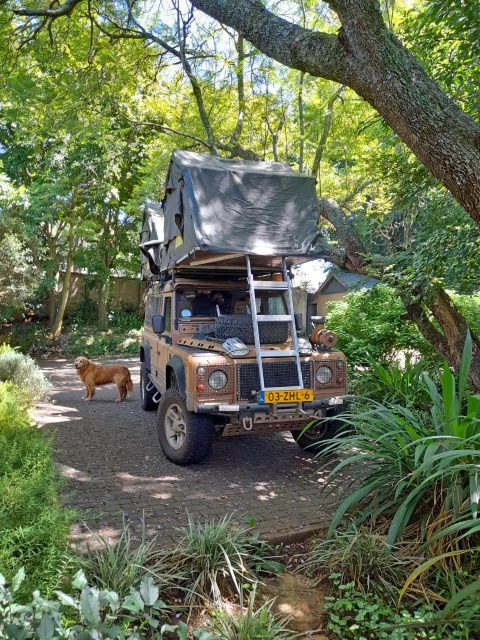
You recently published your therapeutic book on loss, Dag Lieverd, Tot Zo (Bye Sweetie, See You Soon). Can you tell us more about it?
The book is my memoir about loving and losing, accepting the impossible, rising from the ashes, and even forgiveness. My book details my journey through Asia, where we (Fleur and I) traveled extensively when she was only three years old.

As a Land Rover owner, I am biased as to your choice of vehicle, a Land Rover Defender 110 TD5. But could you explain why you chose it?
The Land Rover chose me, not the other way around. I followed another Dutch family on their overland adventure through Africa and I loved their daily posts. When I saw a post that they were selling their beloved Land Rover, something inside of me clicked—this kind of adventure is precisely what I wanted to do with Fleur!
I find that people either love a Land Rover or they do not. I see a lot of Land Cruisers here in Africa and people joke about a Land Rover constantly breaking down. We’ve been very blessed in that our Land Rover has been very reliable, and anytime we have had an issue, we always bump into a Land Rover fanatic who is more than willing to help. The Land Rover community is a big one here in Africa.
[Our] Defender has been converted for overland travel with two Eezi-Awn rooftop tents, an awning, a 50-liter water tank, a compressor, fridge, solar panel, an inverter, and additional diesel tanks on the top and under the car. Everything we need is there.
Social media:
Instagram @journey_of_a_widowed_mom
Our No Compromise Clause: We carefully screen all contributors to ensure they are independent and impartial. We never have and never will accept advertorial, and we do not allow advertising to influence our product or destination reviews.


